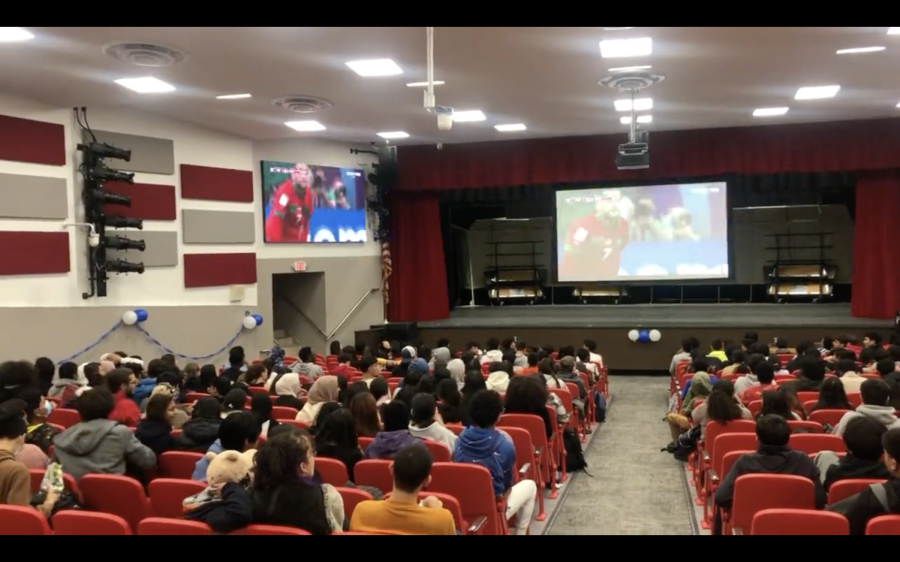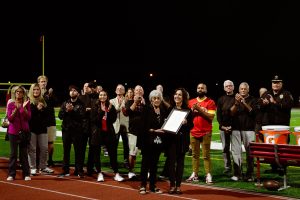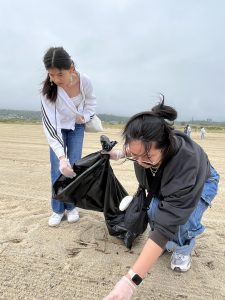World Cup Unifies EHS Community
Students watch the World Cup during a DECA event in this screen grab from a Twitter video.
February 14, 2023
The ending of the Qatar 2022 World Cup left a great impact on society, increasing the popularity of soccer even though it was already a well-known and well-loved sport globally.
The World Cup, formally known as the FIFA World Cup, is a national tournament of men’s soccer teams that compete for the world championship, and occurs every four years. This year, EHS students came to celebrate and show the importance of this momentous occasion.
“It’s like every four years you get the time to have a community around you and it’s the time for unity and everyone watches it,” said Nevval Ozen ‘25. “It’s the biggest sporting event in the world, especially this year.”
Many EHS students felt a sense of community around them since no matter what team they were supporting in the World Cup, it was a game everyone could enjoy. One way the EHS community connected was through the display of various cultures in the World Cup. So not only do people have the opportunity to learn about sport but culture and transition as well.
The different cultures of host countries were shown in a flamboyant way during multiple World Cups, like in the Brazil World Cup of 2014 where there were festivals and dancing.
In this year’s Qatar World Cup of 2022, winning Argentine soccer star Lionel Messi was offered a Bisht, a traditional Arab cloak, to wear by the emir of Qatar. The Bisht symbolizes respect and is typically worn by top officials such as politicians and other high-status individuals.
Not only are different countries’ cultures shown in World Cups, but the World Cup itself embodies a unique soccer culture of its own, as a lot of individual games show the spirit of soccer culture.
“Argentia and France were the best as it was the final game and France also made a comeback even though they didn’t end up winning,” said Arnold Zamora ‘25. “My money was on Brazil and Argentina but Argentina was my go-to pick also. I was very happy that Argentina won, Messi’s my man.”
EHS students’ reactions to the World Cup games showed how connected everyone felt toward the World Cup and its teams. For instance, if a team that someone was rooting for won or lost, that person would feel the same level of excitement or sadness as the players in the team were feeling.
This year, others felt it was more of a unique experience compared to other World Cups since it was the first time it had taken place during the school year, and it was fun to see classmates’ reactions in person.
One major shock was the aftermath of the Morocco versus Portugal game as many people thought that the last game of the World Cup would be Argentina versus Portugal since it would be Ronaldo and Messi’s final games. Even though Morocco lost, it was still the first African Muslim country to get that far and served as a great representation of these two communities.
But as impactful as the 2022 World Cup was, EHS students hope to see more changes in the next 2026 World Cup.
“The other teams who lost will redeem themselves, and maybe South Korea would win too since Asian countries barely ever win,” said Brittany Lin ‘25.
“For it to be exciting and competitive. For there to be exciting plays against each other like incredible saves shots,” said Jack Jiang ‘23.
Jose Carlos Gonzalez ‘26 added, “I hope that it will be more like the Brazil 2014 cup. Like more parties and having more of a festive life instead of just making it all about soccer. It shouldn’t just be about soccer.”
The next World Cup will be held in 2026 and hosted by three nations including Canada, Mexico, and the United States.

























































































